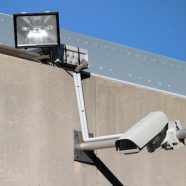Keep Vital Machinery Running for Optimum Production
What constitutes vital machinery in your business will be different from anyone else’s, but it generally falls under at least one of two rules. Losing it makes running your business difficult or impossible, and losing it can create a significant financial loss. Depending on your industry, your vital machinery may be:
- Walk-in refrigerators and freezers in a restaurant
- POS registers in a store
- Medical equipment in a nursing home, clinic or hospital setting
- Computers in an office
- Espresso machines in a coffee shop
What constitutes a vital piece of electrical equipment in one setting can be a luxury in another, and only you know what’s on your list. The important thing is to keep your vital machinery running, with no shutdowns for emergencies. The more types of electrical protection you have, the better the odds that you can keep your business open.
Possible Electrical Problems
Power outages are a larger problem here in south Florida than in many other regions of the country. Our weather is a big contributor to loss of power, causing thousands of micro-outages each year. Every time your power blinks, there’s the possibility of damage being done. Storms aren’t the only reason for the power to go out. Damage from traffic accidents or construction site mishaps can cut power for a long time, while older city wiring can tire out before being replaced.
Even if the power is steadily feeding into your building, you can still have a problem with your supply. Every building is wired based on its average expected use. The wiring in your building is rated for what’s expected on an average day. If your power usage increases dramatically for any reason, it can overload the system. Your circuit breaker will shut down the power to the part of the building that’s overloading it.
Forms of Electrical Protection
The most common reason for vital machinery going down is loss of electrical power. In south Florida we’re subject to more lightning strikes than any other state in the country, plus problems with tropical storms, hurricanes and an aging infrastructure. All this adds up to thousands of commercial electrical south Florida business owners with blackouts that may happen at any time.
The problem here isn’t usually the loss of power; most power outages last only seconds. The trouble happens when the power suddenly comes back on, surging through the system. This power surge can burn out computers and fry circuits in any number of crucial machines in your place of business. Your best protection against this is to have your electrician install surge control devices in your building. A surge controller is a buffer against a sudden sharp spike in electrical power, allowing the machinery to turn back on without the damaging effects of the spike. Some surge protectors even have short-term power supplies, allowing your machines to stay on for five to thirty minutes. This gives you enough time to turn your machinery off, eliminating the danger from power surges.
Even if the city power stays on, you can still have a problem by overloading the system. If your vital machinery is located in one central area of the building, such as a group of computers in one office, it’s smart to have your electrician install a dedicated circuit to that one area of your business. Having important machinery on a separate and dedicated circuit means it won’t be affected if a breaker goes off in a different part of the building. It’s another layer of protection, designed to wall off the most crucial machinery from lesser machines such as coffee makers and lamps.
Maintenance Agreements Can Make All the Difference
The smartest form of electrical protection is setting up a maintenance agreement with your electrical contractor. Every piece of electrical equipment, from your circuit breakers to intricate medical machinery, has maintenance needs and schedules. Following those schedules will reduce or eliminate emergency repair calls due to key machinery breaking down. If a machine is in poor repair, it’s more likely to suffer major damage if it goes through a power spike or outage. Your licensed electrician will replace frequently-worn parts before they need changing, as well as inspecting your equipment to look for potential problems that can come up in the future. Prevention is always smarter than repair, and it’s generally much more cost-effective for your business, too.
Read MoreAre You Considering a Standby Generator Installation This Hurricane Season?
Florida homes and businesses play the odds each year, hoping this one isn’t the year that a big hurricane finally makes its way onshore. Forecasters at NOAA are predicting that the 2016 hurricane season will be the worst one since 2012, when Hurricane Sandy did so much damage further up the coast into New England. We got lucky with Sandy in south Florida, but the odds are getting better every year that a big one will hit our coast and do serious damage to the infrastructure.
Even if your home is slightly away from the beach and flooding isn’t a big danger for you, power outages can happen, leaving residents without electricity for days. Your best defense against this happening is a standby generator. This type of backup power supply is a lot like homeowner’s insurance: you hope you never have to use it, but you keep it around because it’s invaluable when you do.
The Importance of a Standby Generator
Losing your power for a matter of minutes or hours is an annoying inconvenience, but during a hurricane a power outage is more likely to last for days. The impact on families can range from financial to real physical danger. Some of the problems that arise during an outage can be:
- Loss of money because of refrigerated and frozen food spoilage
- Loss of income for people who work at home using a computer
- Increased stress on family members from children not used to living without electronic devices
- Health hazards to those who need medical devices such as nebulizers or CPAP machines
- Environmental impact as extra spoiled food is added to landfills and sewer lines
Even something as simple as charging phones and tablets can be impossible during a power outage, and might be key in keeping in contact with family members in other endangered areas. For comfort, financial reasons and even physical safety, it’s important to seriously consider a standby generator if you live anywhere in southern Florida.
What Type of Power Outage Protection Do You Need?
The simplest form of backup power protection is a portable generator. Small and light enough for one person to move, these machines are effective in powering almost everything you need to keep yourself comfortable during a power outage. The size of the generator you need depends on what you want to run. The least expensive versions are enough to keep on a few lights, make sure the refrigerator and freezer are still running, keep you cool with a fan or two and make sure your electronic devices are powered up. More heavy duty versions are powerful enough to run central air conditioning, keep your whole house lit and make sure your desktop work space is running like normal. They’ll also power critical systems like home security and sump pumps.
A whole home generator is a more permanent type of power outage protection. They’re built in as a part of your home’s electrical system, and powered by a fuel such as natural gas. These generators are fixed in place, usually behind the house, and are usually a planned-for part of the original home building plans. Depending on the size of your generator, you can live through a power outage and never have it affect you in your daily life.
Portable vs. Whole Home Generators
Which type of generator do you need for hurricane protection? Both have their advantages and disadvantages. Portable versions are much less expensive, need no professional installation and can be fueled with ordinary gasoline much like a lawnmower. They can be stored away as needed instead of sitting out and taking up part of the landscaping.
Whole home generators, on the other hand, are a set-it-and-forget-it solution. Once you have the generator installed into your home system and with a fuel line attached, it will automatically kick on any time the power turns off for more than a few seconds. You’ll never have to worry about food spoilage or long outages. Plus, since they run on fuel that’s always available, they’re more reliable than portable versions. When the power’s out, you may not be able to get more gasoline for your portable generator.
Portable backup power supplies are useful for the short term, but when it comes to serious hurricane protection, your best choice is almost always a whole home generator.
Read MoreReview Your Security Options During a Renovation Project
According to the U.S. Department of Justice, burglary incidents have stayed steady in the last ten years. Dig down through the statistics, though, and you’ll see that the dollar amount of goods lost through each burglary has steadily risen. You may not be more likely to have a break-in at your home, but it’s almost certain that you’ll lose much more when it happens.
The bigger problem is that only 10 percent of the burglaries reported result in an arrest. Most burglaries are found after the fact. Police can just come out, take a report, and hope for the best. You’ll need that report for your insurance claim, but it won’t do you any good when it comes to recovering your stolen property.
The solution to this is to have the police be notified while the burglaries are in progress. And this means having a serious security system in your home or business, connected to the security company and to the local police department.
When to Install a Security System
When you’re doing any type of electrical renovation in your home or business, it’s the perfect time to review your security questions. Any electrical project plan can be improved by adding security details. You’re going to be removing walls and rewiring rooms anyway; you might as well put in a security system along with your electrical upgrade.
Consult with your West Palm Beach electrician. He’ll know the types of security system details that work well with your type of building, and will have suggestions for the best ways to incorporate them in your electrical renovation project.
Types of Security Options to Consider
The most common type of security option most people think of is a whole-house security system. This type of setup wires doors and windows with sensors, and will set off an alarm if any entrance to the building is opened without turning the alarm off shortly afterward. Most systems are wired directly to monitoring companies that are trained to alert the authorities once an alarm has been sounded. If your home or business has been broken into, this is the best way for police to catch the burglars in the act.
Another type of security option relies on passive security – making your building look so unattractive, the burglars go elsewhere to commit their crimes. Most of these systems rely on various kinds of security lighting. Burglars rely on stealth and secrecy in order to get away without being caught. They tend to pick the easiest targets in the neighborhood. If your home is brightly lit, thieves are more likely just to move on, all things being considered. It’s simple to add security lighting to your electrical renovation plans. Some of the more common options are:
- Flood lights outside the house, with or without motion detectors
- Lighting under the soffit on your building, which lights up the entire exterior
- Interior light timers that turn lamps on and off, simulating the look of someone being home
Pros and Cons of a Security Lighting Upgrade
Adding a security lighting system to your home renovation project can give you peace of mind and financial benefits, but it can cost quite a bit of money at the beginning. You’ll have to consider what maintenance you’ll need to do with your system each year and factor that in when weighing the pros and cons of a security system.
Speak with security experts or someone from your local police department for local crime statistics. In most cases, installing a new system will more than pay for itself between the decrease in stress and the increase in safety it affords.
Read MoreHow to Choose a Trustworthy Electrical Contractor for Your Business
Is your commercial electrical contractor capable of being trusted?
Every business has its trade secrets, whether it’s a secret ingredient in a dough recipe or an innovation scheduling technique that saves on labor dollars. Every little edge a business has on its competitors can add to the bottom line. When competitors try to find out your business secrets, they may use illegal spying means, called industrial espionage. This criminal tactic isn’t just for huge corporations; it’s used by companies of all sizes that would rather steal good ideas than create their own.
The best way to prevent your company from being a victim of industrial espionage is to know everyone you’re dealing with. This begins with background checks on your employees, of course, but it can’t stop there. Every time you allow someone into your back room or in the business after hours, you’re taking a chance that they’re going to steal your ideas. This goes for repair persons, suppliers, and especially contractors who are there to update or renovate your building.
Can You Trust Your Contractor?
Every business will eventually have to deal with a commercial electrical contractor at least once, and probably many more times. Contractors have to be allowed into every part of your business in order to do their job correctly, so you have to be able to trust the ones you hire. Obviously, the best choice in a commercial electrical contractor you’ve used before who’s done great work for you in the past.
Creating a solid working relationship with a reputable contractor is key to making sure you have people you trust inside your building. If you’ve never had electrical problems before, or if you’re renovating an older building and just starting the process, you’re going to have to take a different route.
Choosing an Electrician You Can Trust
Just like in the rest of the country, a commercial electrician in south Florida is only as good as his reputation. Find a list of past clients and you’ll get a sense of the quality of the work he does. Never rely on just one review, because even the most perfect businesses have disgruntled clients once in a while. But if you look at a list of clients with finished projects, you’ll be able to get an idea of how well he treats his customers, and how trustworthy he and his employees are. Find client reviews at a number of different places:
- Look online at spots like Yelp!, Angie’s List, and other review sites. If you find any reviews that pertain to theft, try to email the reviewer to get more information
- Ask any potential commercial electrical contractor for references from previous clients. Any contractor who’s proud of his business will be happy to supply contact information for some of his previous projects.
- Ask other businesses around town. Almost every business will need electrical work at one time or another; check with neighbors you trust to find professionals they recommend.
Adding Insurance
There’s an old saying: Trust but Verify. It’s as true in business as much as it is in the military and government organizations. It’s good business to treat your contractor like he’s trustworthy. It’s also good business to check up on his references to make sure they’re real.
Don’t make theft any more tempting than it already is. If you’ve got trade secrets, lock them up before you let anyone in the door. Take your recipe books home with you, put an extra-strong password on all your computers and remove any workflow diagrams you may have hanging on the walls. If information isn’t out laying around, it won’t be there to tempt anyone into stealing it.
Read MoreEnergy Management in a Commercial Environment: Why and How
Energy costs can be a huge item in your P&L statement. Here in south Florida it’s even more intense because of the power demand caused by using air conditioning throughout most of the year. These extra energy costs represent money you can better spend on running or improving your business. This is why it’s crucial for you to practice good energy management habits, and to teach your employees to do the same.
Energy management is a system of practices that reduce energy costs across the board. They can be simple set-it-and-forget-it ideas or common practices, but the one thing they all have in common is that they save money and reduce your business’ power usage.
Why Bother With Energy Management?
If you’re not running a factory or other large business, can the savings be great enough to justify the extra time and effort? In fact, there are two reasons to use an energy management system, both of which will show different benefits for your business.
Practicing energy conservation for savings can add up over time. By putting multiple techniques into practice you may save fewer than a hundred dollars a month, but that be a significant savings by the year’s end. This can make a big difference for a business that’s running on a 1-2 percent profit margin.
The other side of the energy conservation picture is doing good for your community. When you cut down on your energy usage, you’re reducing your carbon footprint. The less energy you and other businesses use, the better it is for the environment. You’ll be doing good for the world, plus earning the respect of potential customers who value companies with a social conscience.
How to Save Energy in Your Business
Manage your energy use by upgrading your equipment as well as developing new practices in your business. Begin with small steps like changing all the light bulbs in your building to energy efficient LED bulbs. They only use about 10 percent of the power of traditional bulbs, plus they give off less heat, which is good for any business that needs to constantly cool the building. Include your outdoor lighting and the lights in your security system in this energy makeover. LED lights are just as bright as incandescent or fluorescent types, giving you the same bright security lighting profile.
Have timers installed on all your electrical equipment, both inside and out. This will eliminate wasted power from people forgetting to turn off lights or equipment. You can add individual timers for small items such as desk lamps, but it’s best to get a licensed electrician to install timers for your main lighting and equipment systems. A commercial electrical West Palm Beach contractor will not only be able to correctly install the timers the first time, he can also arrange a maintenance schedule for taking care of all the electrical equipment in the building.
When it comes time to replace old and worn-out equipment, always check the energy ratings to find the one that uses the least power. Energy efficient machines, even those that initially cost more to install, can be cheaper to use over its lifespan.
Manage standby power usage by requiring that all employees unplug equipment when they’re done using it. Machines with an internal clock or standby setting, such as coffee makers and printers, will drain power even when they’re not in use. These so-called energy vampires can drain a significant amount of power in 24 hours without ever being touched. Make unplugging a habit throughout your business.
Involve your employees in your efforts to reduce power. Reward innovation when it comes to saving energy. If you instill a sense of pride in your team because they’re doing good for the environment, they’ll be more likely to help you in your energy management efforts.
Read More





Recent Comments